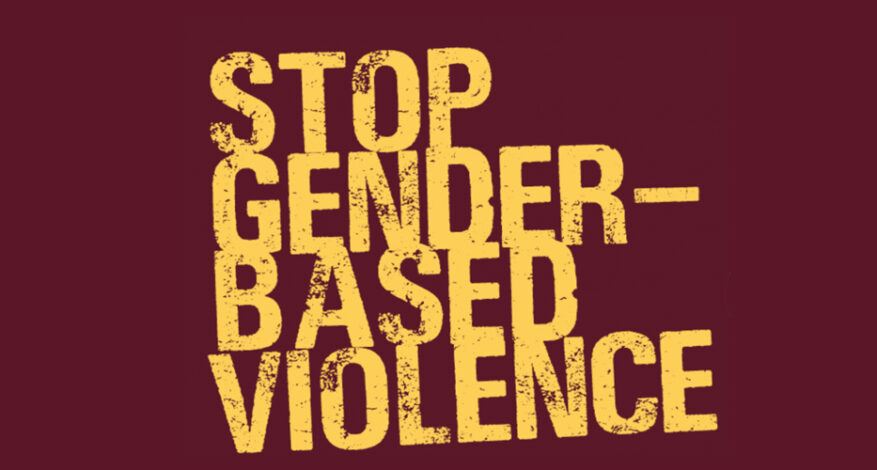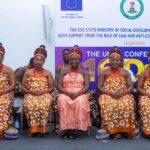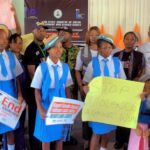By Muhammad Nasir Bello
Gender-based violence (GBV) is a global challenge. Nigeria like other countries has not relented in putting measures in place to check the menace.
The inauguration of the Inter-Ministerial GBV Management Committee and the Sexual Harassment Bill were also efforts to check GBV and protect the rights of women.
It was in the same vein that in June 2020, the National Human Rights Commission, the Nigeria Police and the National Agency for the Prohibition of Trafficking in Persons (NAPTIP) signed an MoU to formally join forces to combat GBV.
The COVID-19 pandemic boosted domestic violence, intimate partner violence, and sexual exploitation and abuse.
In Sokoto State, available records showed that GBV is prevalent in the area. GBV statistics for 2020/2021, showed that in the state, no fewer than 700 persons experienced one form of GBV or the other.
“At least 32.8 per cent of every married women, aged 15-49 years experienced emotional, physical or sexual violence committed by their current or most recent husband/partner in Sokoto State,” according to the National Demographic Health Survey (NDHS) 2018.
It also noted that 8.6 per cent of women aged 15-49, experienced physical violence since age 15, while 5.4 per cent of women 15-49, experienced genital mutilation, and 0.7 per cent per cent of women experienced violence during pregnancy.
The recent data on GBV in Sokoto State, indicated that 725 reported cases were recorded from March 2020 to June 2021.
Mr Rabiu Gandi, Sokoto State Coordinator, Sexual and Gender-based Violence and Child Protection Response Team, under the EU-UN Spotlight Initiative, gave the figures at the half of the year NGO 2021 coordination meeting.
According to him, daily violations had been on the increase.
He stressed the need to enforce the provisions of the Violence Against Persons Prohibition (VAPP) Law in order to bring perpetrators to book.
The Sokoto State House of Assembly is also not left in the effort to check GBV.
On July 6, the Assembly passed the Bill for a Law on GBV. It was designed to beef-up the provisions of the Penal Code Law, 2019, and provide for punishment of offences relating to GBV.
According to Alhaji Maidawa Kajiji, the Chairman, House Committee on Judiciary, Justice and Human Rights, the bill made provisions for compensation of victims, in addition to penalties on the offenders.
“The court shall in addition to penalties provide for the offences, award appropriate compensation to the victim as it may deem fit in the circumstance.
“Also, whoever rapes, shall be imprisoned for life or for a term of not less than 21 years; but if the offender is 14 years of age, shall be liable to imprisonment for a term not more than 14 years, while below shall be less than 12 years.
“However, in the case of rape by group of persons, the offenders are jointly liable to a term of imprisonment of not less than 25 years without an option of fine, while any person who rapes a child shall be liable to life imprisonment,” he said.
Kajiji added that the bill made provision for the establishment of a register for convicted sexual offenders, which should be made accessible to the public.
“Moreover, a person who performs female circumcision or mutilation commits an offence and is liable on conviction to a term of imprisonment not exceeding four years or fine, not less than N200,000 or both.
“Also a person who abandons a wife or husband, children or other dependents without any means of sustenance shall serve imprisonment term not exceeding three years or fine not exceeding N500,000 or both and pay compensation in addition,” he said.
The lawmaker further said that the bill made provision for the establishment of Sexual and Gender Based Violence (SGBV) Offences Response Team in each of the three senatorial zones in the state.
On the GBV survivors destiny, the EU-UN Initiative, has continued to initiate empowerment policies to support victims of GBV. On June 27, no fewer than 160 victims of GBV were empowered with working tools, under the EU- UN Spotlight Initiative Project.
A 20-year-old victim, who shared her experiences with the News Agency of Nigeria (NAN) at the event, said she was forced to marry a soldier, who continued to maltreat and dehumanise her.
The victim, who pleaded anonymity said: “I was married at the age of 13 without my consent.
“He abandoned me nine days after the marriage, and returned after seven months. When he came back, he started beating and I sustained injuries
“The beating and dehumanising treatment continued for years. I left my matrimonial home seven years ago, and all attempts to secure divorce failed,” she said.
The 20-year-old victim said when she left the matrimonial home, she went back to school.
“I just finished secondary school, and I am willing to further my education if I get support,’’ she said.
Another victim, who suffered from obstetric fistula, Hajara Yusuf, said that she has four children.
Yusuf, who resides in Bodinga Local Government Area, said she received free surgery under the EU-UN Spotlight Initiative.
“I have fully recovered and living a normal life like any other woman,” she said.
With more concerted efforts the incidents of GBV will be greatly reduced in Sokoto State. (NANFeatures)

 Join Daily Trust WhatsApp Community For Quick Access To News and Happenings Around You.
Join Daily Trust WhatsApp Community For Quick Access To News and Happenings Around You.


